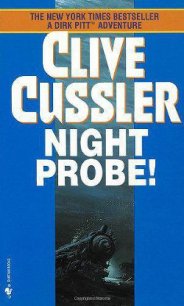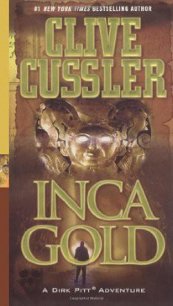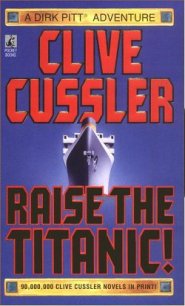The Tombs - Cussler Clive (читать книги бесплатно полностью txt) 📗
“Are you in Szeged now?”
“We are.”
“I used the computer to match the shape of the drawing to the shapes of the world’s rivers to find out where Albrecht had been digging. I knew you’d be going to the find.”
“Now we really have to,” said Remi. “Nobody would grab Albrecht for ransom. He’s not rich, just smart. They must want him to take them to his discovery and probably tell them all about it.”
“What can I do to help?”
Sam said, “First, e-mail me a conventional road map with Albrecht’s site marked on it.”
“I’ll have it for you in a minute.”
“And abducting professors isn’t something every criminal does. We need to know who is interested in the archaeology of this area, both legitimate and not.”
“I’ll see if Interpol will tell us who has been dealing in smuggled artifacts from Hungary, and the rest of Central Europe, lately. I’ll also check with museum curators and antiquities dealers. If I got the date right, it was 450 C.E.?”
“That’s right,” Sam said. “And one more thing.” He took out the card the cabdriver had given him. “I’d like you to check out a driver in Szeged named Tibor Lazar. He was waiting for a fare outside the train station when we arrived and he speaks English like the average Londoner. See if he’s too good to be true.”
“I’m on it. Another question for Interpol.”
“Thanks,” said Remi. “Meanwhile, we’ll be here trying to draw attention to ourselves.”
“Is that the best idea?”
“At the moment, it doesn’t have much competition,” Remi said. “If we do what Albrecht did, maybe we’ll get a reaction from the same people who noticed him.”
“Let’s hope it’s not the same reaction,” said Selma. “I’ll get this information to you as soon as I have it. The map is already on your iPad with the site marked. Good-bye.”
Sam turned off his iPad. Remi said, “Ready to face the tour?”
“Eager.”
They went outside to where Tibor was sitting in his cab. He got out and opened the back door. When they were in, he said, “You wanted to see the town?”
“Yes,” said Sam. “Can we start at the river?”
“Of course,” he said. “This is a good year for the Tisza. There are no floods, no droughts, no chemical spills upriver, no anything. Last year, we had everything.”
Sam was watching his telephone, where Selma’s map was on the screen. “It looks like a big river.”
“It runs from north of Hungary, in the Ukraine, all the way down here, about a thousand kilometers, and empties into the Danube on the Serbian border. It’s been important since ancient times. We don’t get a lot of rainfall here on the southern part of the great plain. But the water comes south from the high country in the Ukraine, and the Mura River comes in from the east in Romania and brings the snowmelt and rain from the Transylvanian mountains.”
Remi said, “I suppose the course of the river has changed since ancient times?”
“Many times. It was a slow, meandering river, with big loops going back and forth across the plain. But people never leave anything alone. In 1846, Count Istvan Szechenyi started straightening it. He cut it down to about a thousand kilometers just by cutting across the loops. Now there are about six hundred kilometers of dead channels. They did more to improve it in the eighteen eighties, nineties, and the nineteen hundreds. Maybe there was some more that I’m not remembering or never heard about. But then in 1937 they realized that they’d better start fixing the parts that they’d ruined. Now the river is pretty straight, but it still floods—maybe worse than ever. The channels fill up with silt. But they’ll keep fixing it as long as new politicians are born.”
Sam said, “Up ahead, can you cross the bridge and show us the other side of the river?”
“Certainly,” said Tibor. “We call that side Uj-Szeged. It means ‘New Szeged.’ The old city was all on the west side.”
“Is the east side really new?”
“It was always here, of course, but the city has grown mostly in the empty areas.” He crossed the low, recently painted iron bridge, and they looked down on the river.
“Can you take us along this side a few miles?”
“Sure,” said Tibor. “It’s a beautiful, sunny day. We have the sunniest city in Hungary.”
He drove them along until Sam could see they were near the spot that Albrecht had mapped. It was a large open field that was planted with alfalfa and left fallow.
“What is this land on the right?” asked Remi.
“This? Oh, it’s just an old farm. It used to have cattle grazing on it. During the Communist times when I was a kid, it was part of a big farm collective. Since then, the government has been part of an effort by all the countries in the Danube basin to clean up the rivers. They haven’t reopened the cattle farm. It’s too dirty to be this close to the river.”
“Can we stop and take a look?”
“Of course,” Tibor said. He pulled over to the side of the road and parked. Sam and Remi walked a bit on the field by themselves.
“Well, we came,” said Remi, “and I don’t see anybody.”
“No signs of recent digging either,” Sam said. “Albrecht must have replaced the turf when he left and it hasn’t been disturbed.”
“Do you think Albrecht managed to persuade his kidnappers that his find was somewhere else?”
“I doubt it. All Selma needed was the outline of the river to find it, and Albrecht knew somebody had been watching him while he was here. I have a strong feeling they’re keeping him somewhere close by. In order for him to be of use, they’d have to bring him here to tell them where to dig and what to look for or have him where they can bring the things they find to him.”
“Maybe. But how do we find him?”
Sam looked past her. “I think the watchers have found us.”
Remi turned her head to see a dark car that was stopped far up the straight two-lane road that ran along the river. A person with sharp eyes could detect that there were heads visible above the seats. She took out her phone and took a few pictures of the field, the river, and then up the road where the dark car stood.
Sam said, “Albrecht mentioned a big black car with four men in it. Do you think your phone will catch a license plate at that distance?”
“Maybe, but I have a feeling we’ll get a closer look,” said Remi.
They walked back toward the car, and Tibor said, “Do you know those men in the black car?”
“No,” Sam said. “Do you?”
“I don’t think so. I saw a reflection a minute ago. One of them seems to be watching us with binoculars. That’s the right word, isn’t it?” and he held both hands up to his eyes with the fingers circled.
“That’s the word,” said Remi. “They’re probably just wondering what we’re doing walking around an old cow pasture.”
“All right,” he said. He started the car and made a three-point turn and drove back to the bridge they had crossed, returning to the west side of the river. He kept looking in the mirror. “Are you sure you don’t know them?”
“Positive,” said Remi. “We’ve never been to Hungary before.”
They drove to Arad Martyrs Square and saw the monument to the men killed in the 1848 revolt, the Musical Clock with sculpted figures from a medieval university, Klauzal Square, Schechenyi Square, all in the city’s center. The district was full of flowers and trees and pastel-colored baroque buildings that didn’t look real.
As Tibor took them from place to place, Sam and Remi kept track of the black car. When they stopped abruptly near the center of the city, the car nearly caught up with them. Remi took another photograph through the rear window.
Tibor noticed. “Those men remind me of the way things were under the Communists. There were people who seemed to have no jobs except to follow people around and report them.”
“I’d like to know who they’re reporting us to,” Remi said.
“I wonder if we can find out,” said Sam. “Will the police tell us who owns a car if we have the license number?”




